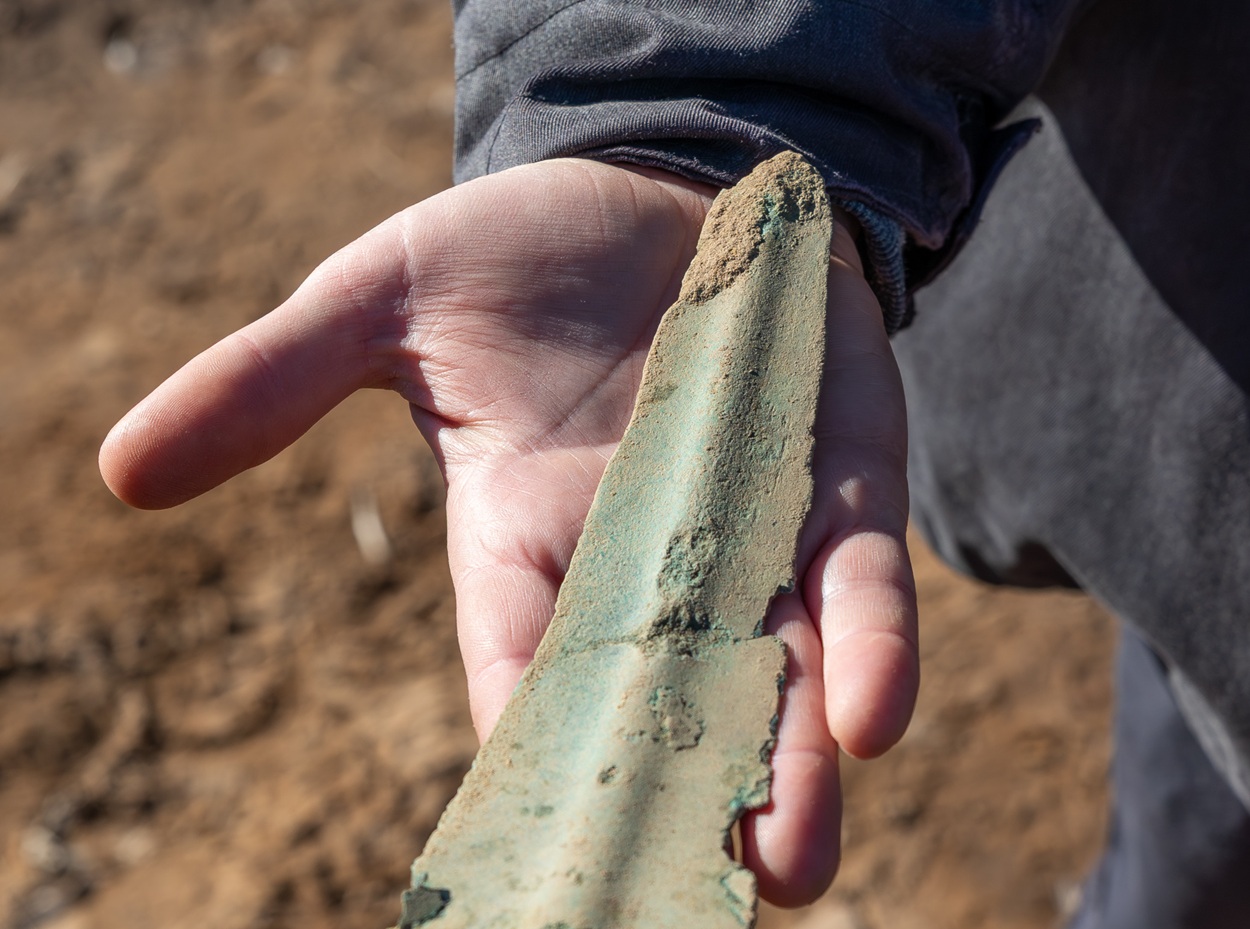A pair of 3,000-year-old Bronze Age daggers have been discovered by archaeologists near Kutenholz, a municipality in the district of Stade, Lower Saxony, Germany.
The site was first identified in 2017 during a metal detecting survey that uncovered blade fragments closely resembling the newly discovered daggers.
Since 2024, the University of Hamburg has been conducting geomagnetic surveys of the site and wider area.
This technique enables the researchers to detect subtle changes in the Earth’s magnetic field caused by buried archaeological features and visualise what lies beneath the surface.
Several anomalies warranted further study, so archaeologists conducted a series of excavations which revealed two bronze blades buried just 30 centimetres beneath the surface.

District Archaeologist, Daniel Nösler, said: “It is a stroke of luck that the finds were not destroyed at such a shallow depth in the area, which has been cultivated with heavy agricultural equipment for years.”
According to a press statement issued by the Stade District Service Portal, the daggers are made of bronze (a copper-tin alloy) and originate from Eastern-Central Europe during the same era as the Nebra Sky Disk around 1500 BC.
Professor Tobias Mörtz, a Bronze Age expert from the University of Hamburg, believes the daggers had a ritual or symbolic function rather than being used in combat.
Both daggers appear to have been deliberately placed upright at the highest point of elevation in the area. Without any evidence of corresponding burials, this indicates that they were intentionally deposited as offerings.
Both daggers have been sent to the University of Hamburg for further examination and restoration.
Header Image Credit : Christian Schmidt
Sources : Stade District Service Portal





